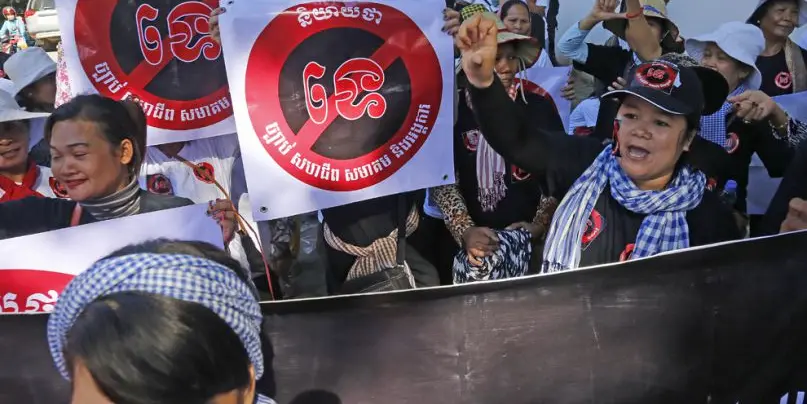
ASEAN Parliamentarians call on Cambodia to abandon restrictive, undemocratic NGO law
May 09, 2015

JAKARTA – ASEAN Parliamentarians for Human Rights (APHR) today called on the Cambodian government to abandon its proposed Law on Associations and Non-governmental Organizations (LANGO), arguing that the ruling party has pursued a fundamentally undemocratic course in attempting to secure the passage of a law that threatens freedom of association and expression in Cambodia.
“Barring major revisions, this law constitutes a clear threat to the fundamental rights of all Cambodians, in direct violation of Cambodia’s obligations under the International Covenant on Civil and Political Rights and the Universal Declaration of Human Rights,” said APHR Chairperson Charles Santiago, a member of parliament in Malaysia. “It further jeopardizes the ability of civil society to operate freely and effectively in the country.”
The draft law, scheduled for a parliamentary vote in the coming days, mandates that all civil society organizations (CSOs) register with the government and criminalizes activity by unregistered organizations. Guidelines for the approval of registration are exceedingly vague and provide authorities with room to arbitrarily reject applications from groups critical of the government.
“While a desire to regulate NGOs is legitimate, the restrictions included in the current draft are draconian and entirely unnecessary. Ultimately, the law represents a tool to silence critical voices and crack down on political opponents—one which enables harassment of legitimate organizations that might dare express opposition to the ruling clique,” Santiago added.
“Local and international groups engaged in all areas of society—from healthcare to environmental protection to the rights of women and children—helped Cambodia to its feet after the country suffered some of the worst atrocities of the 20th Century,” noted Kraisak Choonhavan, an APHR board member and former Thai MP. “This law threatens to prevent these organizations from continuing their important work.”
APHR further noted the lack of public consultation on drafts of the law.
“As lawmakers, we value thorough public consultation on proposed legislation as a crucial component of a transparent legislative process,” Charles Santiago said. “The government’s approach securing passage of this NGO law has been anything but that.”
Throughout the drafting process, the Cambodian government failed to make the draft law public, despite repeated requests from organizations both within Cambodia and internationally.
It also ignored calls from CSOs to consult with various stakeholders. While a consultation session is scheduled for today, APHR argued that the government’s decision to convene the meeting is neither genuine nor sufficient.
“A hastily called, last-minute question-and-answer session is not enough,” said Son Chhay, an APHR board member and opposition MP from the Cambodian National Rescue Party (CNRP).
“The government has pursued the passage of this legislation in a fundamentally undemocratic and non-transparent manner, choosing to ram the law through the National Assembly, rather than allow for open dialogue and discussion of its contents. Without true public consultation and input from opposition voices this law will remain unacceptably flawed.”
These and other concerns were included in a 6 July letter to Cambodian Prime Minister Hun Sen, signed by APHR and 39 other international organizations.
“If the government of Cambodia is truly serious about the protection and promotion of human rights, it should stop rushing down this precipitous path to the adoption of this unnecessary and non-human rights-respecting legislation now before the National Assembly,” the letter concluded.
ASEAN Parliamentarians for Human Rights (APHR) was founded in June 2013 with the objective of promoting democracy and human rights across Southeast Asia. Our founding members include many of the region's most progressive Members of Parliament (MPs), with a proven track record of human rights advocacy work.